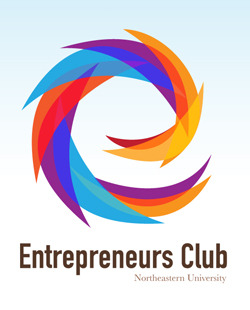“Assuming makes an ass out of you and me.”
I make it a point to focus on clarity with my team. This plays off the old saying that “assuming makes an ass out of you and me.” I may have an idea for a project, or a specific deliverable that I need someone on my team to take care of. If you want something done right, you need to be explicitly clear with exactly what you need, the format you need it in and the deadline. I use bulleted lists, bold things and use key words like “action items” and “deliverables.”
If I am on a team and get these kinds of instructions from the project manager, there is no excuse to get it wrong, because it is so drop dead obvious, and everyone knows it.
It’s really easy to be clear. Use the following guidelines when outlining instructions:
1. No big words.
Use simple language that is easy to read and digest.
2. Don’t write long paragraphs.
Bulleted lists are your best friend.
3. Bold what is important.
People’s eyes will go right to it.
4. Format documents.
Use tables, use visuals. My professor and serial entrepreneur, Bruce Russell, explained it best that the important stuff should jump right off the page.
5. Be careful with acronyms.
I only use acronyms when my team either knows them, or I want my team to learn them by searching on Google.
6. No extra information.
Tell people what they need to know. Nothing less, nothing more.
What are the advantages of clarity?
- Less mistakes
- Less frustration
- Faster delivery times
- Things get done right the first time
- Happier team
So, next time you are writing a Goliath email that seems more like a Harry Potter novel, take a step back and ensure that things are concise and the important information is abundantly clear.
 Especially in the world of entrepreneurship, having great mentors and being a great mentor is crucial. Mentors can act as guides for a young entrepreneur, helping them avoid classic mistakes, making key introductions and serving as a teacher far after college graduation day.
Especially in the world of entrepreneurship, having great mentors and being a great mentor is crucial. Mentors can act as guides for a young entrepreneur, helping them avoid classic mistakes, making key introductions and serving as a teacher far after college graduation day. Alright, I admit it – I’ve slacked on this blog. I mean seriously, my last post was in October. But have no fear, I’m back with the energy and enthusiasm of a kid after eating an entire box of oreos (or me, after eating an entire box of oreos…)
Alright, I admit it – I’ve slacked on this blog. I mean seriously, my last post was in October. But have no fear, I’m back with the energy and enthusiasm of a kid after eating an entire box of oreos (or me, after eating an entire box of oreos…) As a continuation on last week’s post on the value of design, I want to give credit to a very important part of design: photography. Photography is an amazing art form and when done well, functions just like great graphic design to elicit a feeling from the viewer, and look beautiful at the same time.
As a continuation on last week’s post on the value of design, I want to give credit to a very important part of design: photography. Photography is an amazing art form and when done well, functions just like great graphic design to elicit a feeling from the viewer, and look beautiful at the same time. You know that old saying, “you catch more bees with honey than with vinegar?” As silly as it sounds, it works so well in the real world. Yesterday on my way to class, I noticed a table with a large group of students gathering around it. Upon looking closer, they were all filling out surveys. Now I may not be in on the hippest things to do on campus, but generally us college students aren’t super excited about surveys. They are annoying, time consuming… bleh.
You know that old saying, “you catch more bees with honey than with vinegar?” As silly as it sounds, it works so well in the real world. Yesterday on my way to class, I noticed a table with a large group of students gathering around it. Upon looking closer, they were all filling out surveys. Now I may not be in on the hippest things to do on campus, but generally us college students aren’t super excited about surveys. They are annoying, time consuming… bleh.  I have an immense respect for great design, and every entrepreneur and business leader needs to agree. When I think about design, I consider not necessarily what something looks like, but about the feelings that it can create. Making a logo or banner beautiful is one thing, but creating it so it arouses a feeling from the people who see it is so much more powerful.
I have an immense respect for great design, and every entrepreneur and business leader needs to agree. When I think about design, I consider not necessarily what something looks like, but about the feelings that it can create. Making a logo or banner beautiful is one thing, but creating it so it arouses a feeling from the people who see it is so much more powerful.  Flash back to 9th grade history class. The teacher passed out an assignment, some sort of research and essay stuff. But there was a catch – students in the class had a choice to do a second assignment instead. The second one involved completing a longer reading, and writing a lengthier, more complex essay. This alternate assignment was mandatory for any student who wanted to apply for AP World History the following year.
Flash back to 9th grade history class. The teacher passed out an assignment, some sort of research and essay stuff. But there was a catch – students in the class had a choice to do a second assignment instead. The second one involved completing a longer reading, and writing a lengthier, more complex essay. This alternate assignment was mandatory for any student who wanted to apply for AP World History the following year. With the popularity of programs like
With the popularity of programs like